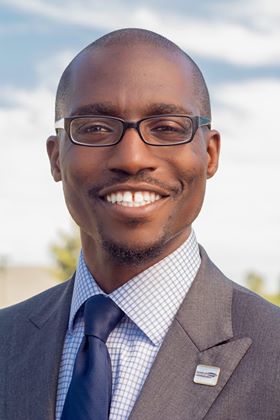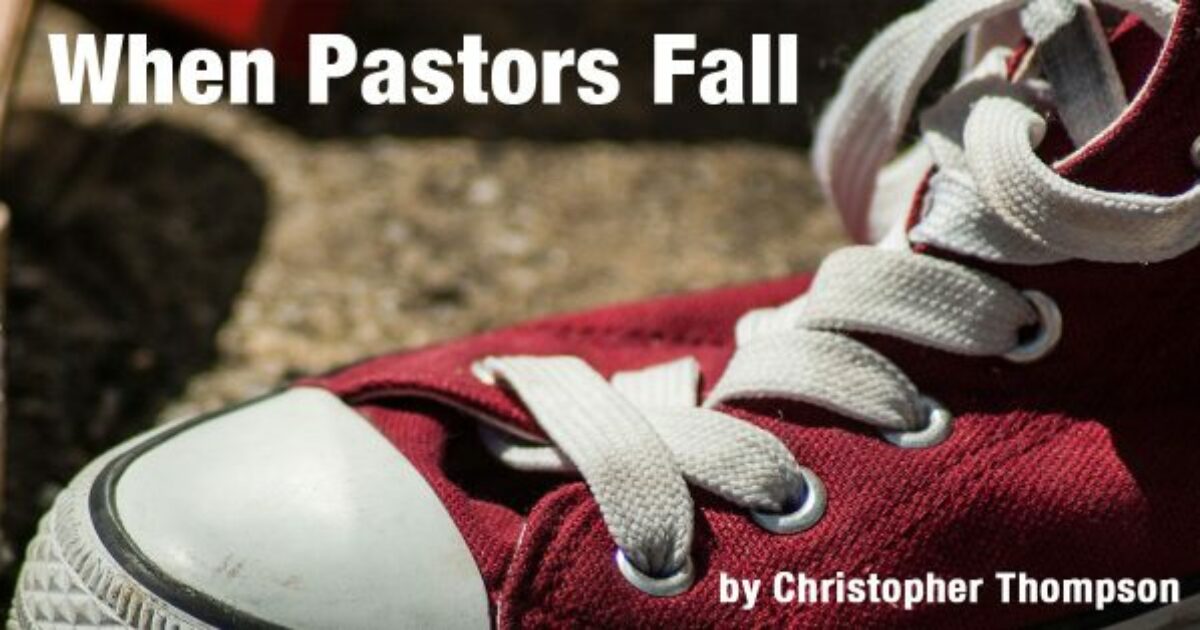When Pastors Fall, Who Helps Them Up?
I tore my achilles tendon yesterday.
I wish I were making this up. Nevertheless, it’s true. I was playing basketball. Trying to stay in shape towards my ultimate goal of completing a full ironman triathlon. I had the ball and tried to change direction really quick, and I heard a loud pop. I was startled by the sound and wondered what it was, but simultaneously fell to the ground. I felt the tear as it happened. And though I’ve never had a major injury, I knew immediately what had happened. I helped myself up and hopped off the court. I laid on the bench for a while to collect myself. I called my wife to assure her that I was fine, but that I’d certainly need to go to the hospital. I thought to myself, “Wow! So this is what an injury feels like huh?”
The more I reflect on this entire ordeal, it made me think about what happens when the the pastor falls. What happens when a pastor falls sick and develops a major illness? The pastor visits the sick and shut-in, but what about when the pastor is the sick and shut-in? What about when the pastor falls asleep in death? After officiating countless funerals and standing at the graveside of many fallen saints, who is there to care for the pastor and the pastor’s family when they are bereaved? What about when a pastor has a moral fall? The pastor works tirelessly to restore those who have fallen into sin, but what happens when the pastor falls into sin? As a matter of fact, what are the steps that lead to a pastor having a moral fall? I’m sitting in the doctor’s office waiting to be seen, by an orthopedic specialist, and all of this is running through my mind.
Allow me to first state the obvious. Pastors are human. We are no less human, nor more divine than any other church members. Yet, we possess unique gifts that have special significance for the church. Whether those gifts and abilities are utilized in the local church or some other level of denominational service, pastors are still susceptible to every human frailty there is.
I know an older pastor who developed sarcoidosis. He was out for two months and could have possibly lost his life. He said that though he felt supported by his church, he felt little support from his ministerial director. I know another younger pastor who contracted Lyme disease. Even though his sickness spanned over multiple years, he was never visited by the conference administration and even trusted friends weren’t supportive. He said he had to go to counseling to deal with the bitterness he dealt with as a result. I know an elderly pastor who had a stroke. His wife takes great care of him. His children are very attentive. I went to visit him a few times, simply out of respect. As I reflected about his condition, I couldn’t help but wonder how many or if any of the members he pastored took time to visit with him. I wondered how the administrators of the conference where he served for so long were providing support for him.
This week we funeralized a pastor who means a lot to me personally. He has given me great encouragement and counsel on several occasions. I even leaned on him during a very difficult time personally. He recently retired and the last time we talked he shared with me some of his future plans. Among other things, he said that he intended to focus on playing the piano. He died before he could even begin to truly enjoy retirement. I heard a story about a pastor who died while his school-age children were still attending Adventist academy. Though he was a beloved worker, the tuition discount for employee’s children no longer applied for a family where the employee had died. A former conference treasurer recently shared with me information about a local conference program that offers an additional death benefit to their workers. While I’m not able to confirm all of the details of the benefit, I understand that the policy for each worker is considerably large. It begs the question about the ways we support pastors’ families when the pastor falls asleep in death.
And then, what about those who fall into sin, fall from grace or fall away from the church altogether. There seems to be a flurry of instances in the recent past where pastors have left the church, left the ministry or left/embarrassed their families. How do we support them? Did we support them? Did anybody see the signs and help them get help? Recently I wrote a piece encouraging pastors to make a covenant to demonstrate healthy practices to preserve their families and make sure family is their first ministry.
When a pastor is overwhelmed or under-supported everybody loses. The church ends up with a pastor who is stretched too thin to lead well. The conference ends up with a church that isn’t thriving in the ways that it should. And the community has a church with lackluster witness and service. I spoke to a pastor who testified to feeling unsupported. He said, “It’s easy to become bitter when you are going through, and people don’t do what you want/need them to do.”
I asked him what he thought pastors needed and he gave me these three things:
- Leaders (administrative and ministerial) who are accessible and have a passion for caring for leaders. – Pastors have to know that if they show weakness that they won’t be dispensed with. They must be confident that their leaders truly care for their personal needs and concerns.
- More mentoring and accountability; not for the sake of punitive treatment, but in terms of loving, familial, pastoral support. – What if every pastor had a “big brother/sister”, an “uncle/aunt” and a “father/mother” in ministry that could watch over them and ensure their consistent well-being and development?
- Church members who are ministry-minded and love us as real people. – It’s been said a million times or more, if the members aren’t busy fighting the fight of faith, then their fighting each other. Often times the pastor gets caught in that crossfire.
However, there’s a deeper side to this. My pastor friend went further and said that this really deals with a much deeper heart issue. Is it possible that we fail to serve those who serve us because we simply don’t value their needs and their well-being? Though I hadn’t considered it from that perspective, it made me stop and think. Then, tonight, I saw a documentary about war veterans who return home with countless ailments and conditions. A new war is being waged in our own country to fight for the rights of those who have sacrificed so much for the freedoms we enjoy. Why is it so hard to secure services and care for those who have risked their very lives? While pastors and soldiers serve two totally different roles, and pastoral ministry does not require a pastor to sacrifice her physical body on a foreign battlefield, the parallels exist nonetheless.
Right alongside the lack of consideration for the needs of ministers is the subtle idea that ministers shouldn’t have needs at all. While it isn’t overtly taught, it’s caught in so many ways. Pastors are expected to be impenetrable, impervious, incorruptible beings from the spirit realm. Pastors should not have weaknesses, deficiencies, inadequacies or idiosyncrasies. It’s the rationale behind refusing to give a pastor a gratuity or a pastor appreciation gift. It’s the reason why church members complain whenever the pastor misses a Sabbath worship service. It’s one of the primary reasons why church members don’t pray sincerely for their pastor. The pastor couldn’t possible need my prayers, after all, she’s the pastor.
It often seems that when pastors fail to meet the expectations of church members and administrators alike (no matter how unrealistic they may be), we check out. It’s like that saying, “They all love you until you tell them ‘no’.” It’s this sneaky little tendency to give up and walk-out on those who don’t give us what we want, when we want it, how we want it. When people stop being what we want them to be we determine that they won’t be anything at all. That’s not just an issue we have that deals with how we relate to pastors. It’s an issue that deals with how we relate to all the people in our lives.
When I fell and injured my achilles tendon, there just happened to be a woman nearby who had an ace bandage and a bottle of water. Several people gathered to make sure I was alright. They offered to call 9-1-1. I declined. One friend brought ice, another brought pain killers and offered to drive me to the hospital. I was scheduled to be at the church in the afternoon to receive a shipment of new furniture for the sanctuary. I was blessed to have several community members, friends and church members rally at the church to receive it. They made sure that the giant crates were removed from the truck, opened, furniture inspected and installed and then made sure that the sanctuary was cleaned afterward. I was chided for not sitting and refusing to rest my injured foot, while they handled the heavy-lifting.
Today, the doctor told me that I need surgery if I want to actually complete an Ironman triathlon one day. And so tonight, the prayer warriors laid hands on me and prayed for my healing and well-being. As I reflected on it all, it made me think of what the church is capable of when we support each other and extend loving commitment to the work of ministry and all of those involved.
I don’t want surgery, but I do trust my doctor. I am not invincible, but a united church is an unstoppable force for good. Pastors fall, but God never fails. Let’s work to make certain that when the pastor falls, we extend the arms of grace, love, compassion and support on God’s behalf to cushion his fall and strengthen the church.
 Christopher C. Thompson is the pastor of the Hillcrest Church in Pittsburgh, PA. He and his wife Tracy have one son, Christopher II. The three of them live in Pittsburgh’s historic Hill District. He has been training for the 140-mile Ironman Triathlon.
Christopher C. Thompson is the pastor of the Hillcrest Church in Pittsburgh, PA. He and his wife Tracy have one son, Christopher II. The three of them live in Pittsburgh’s historic Hill District. He has been training for the 140-mile Ironman Triathlon.




